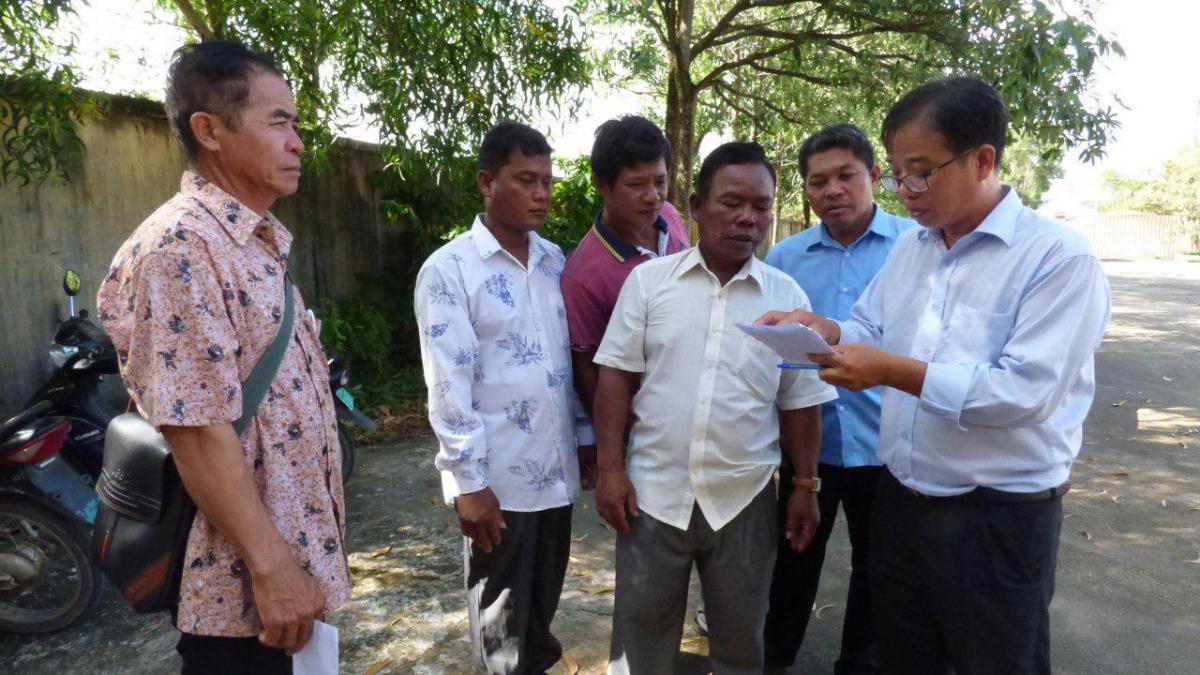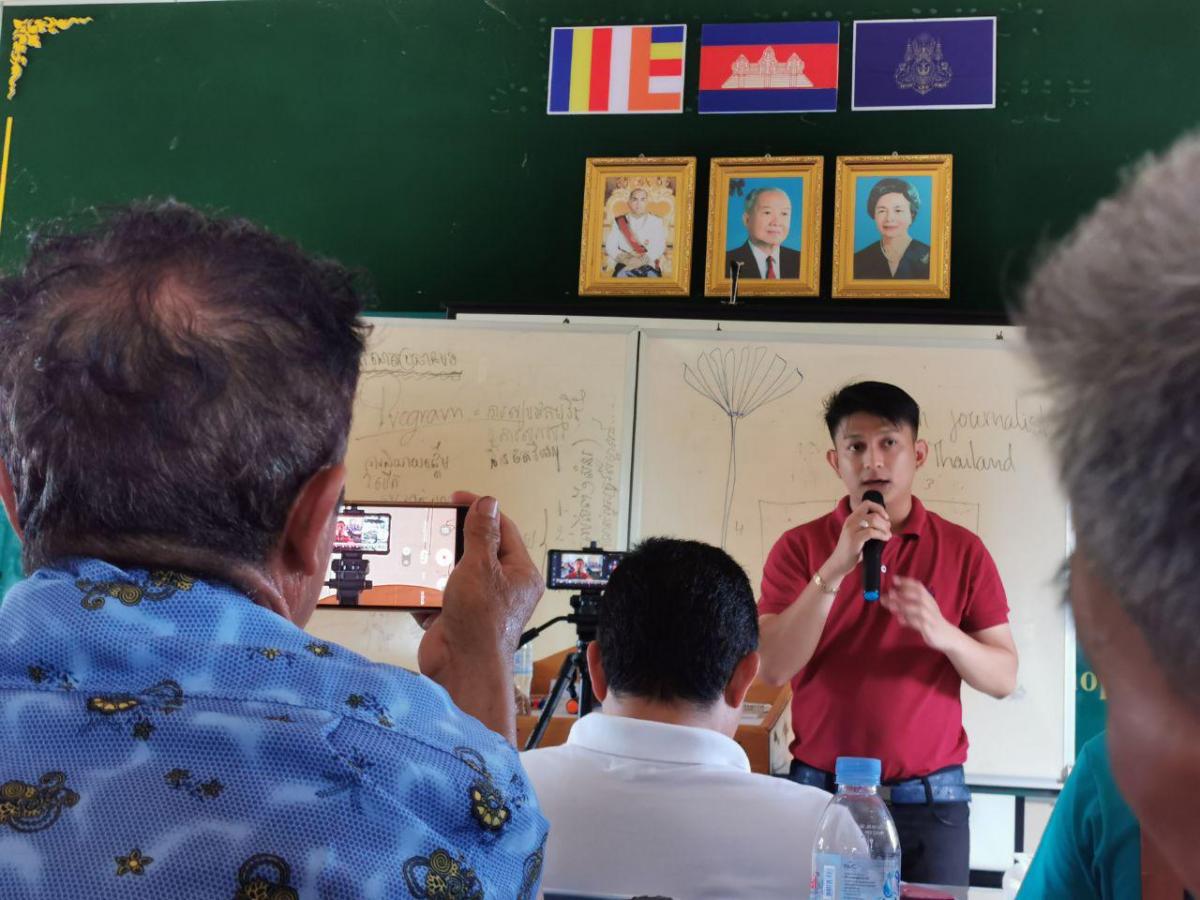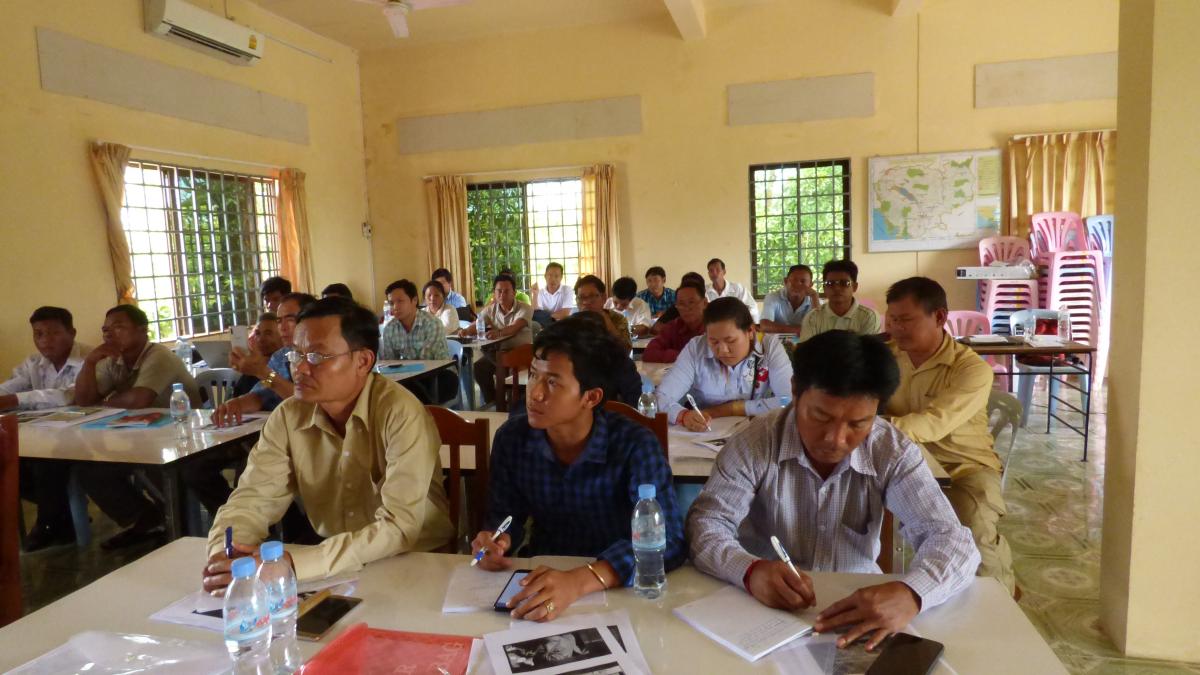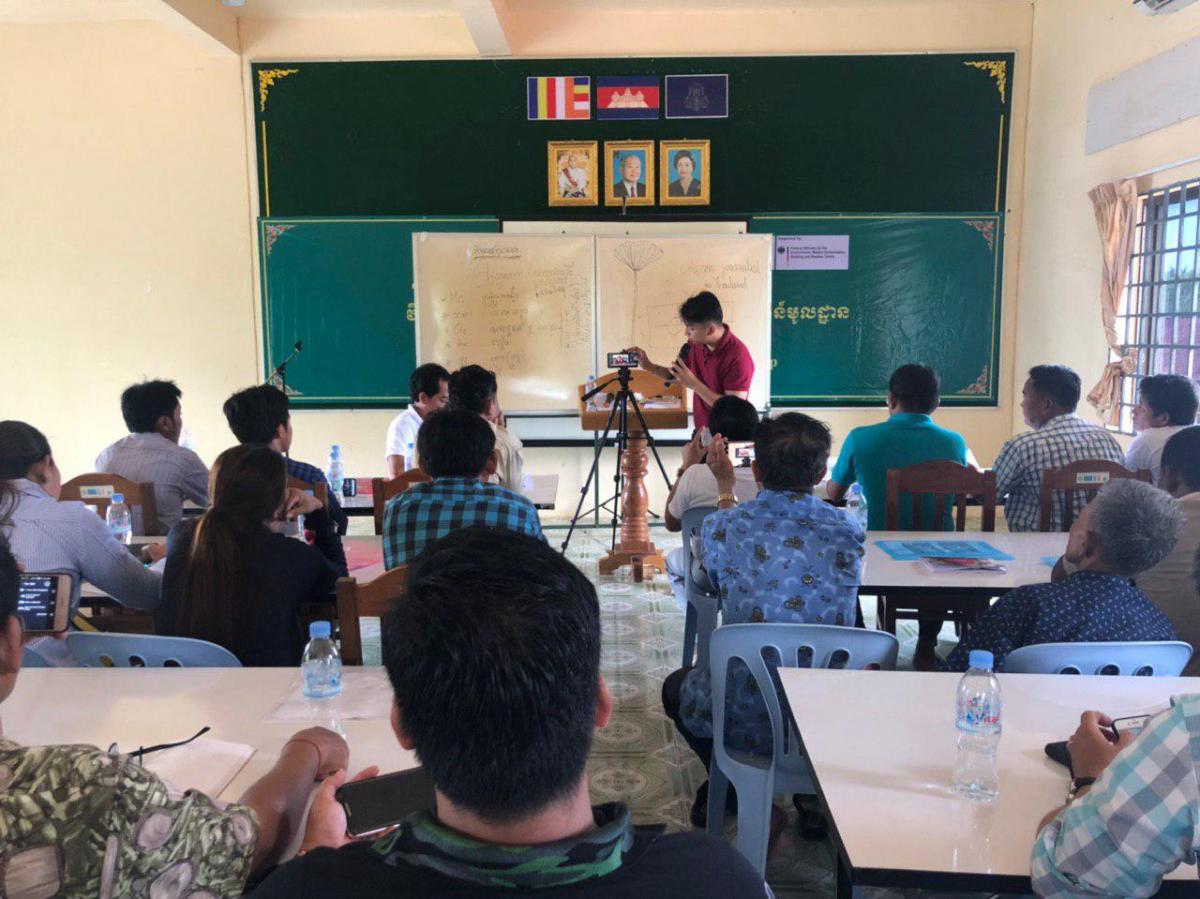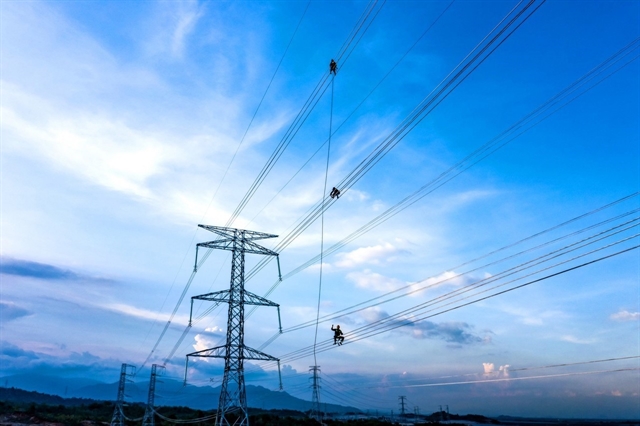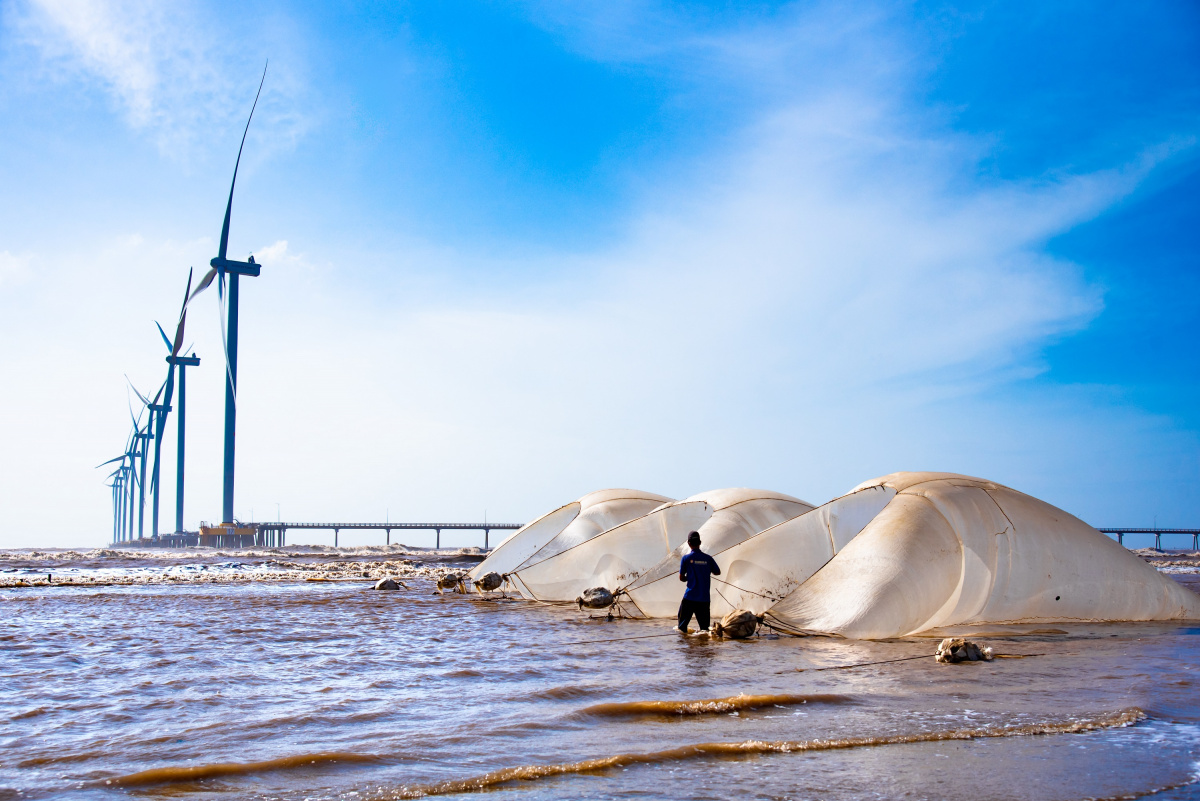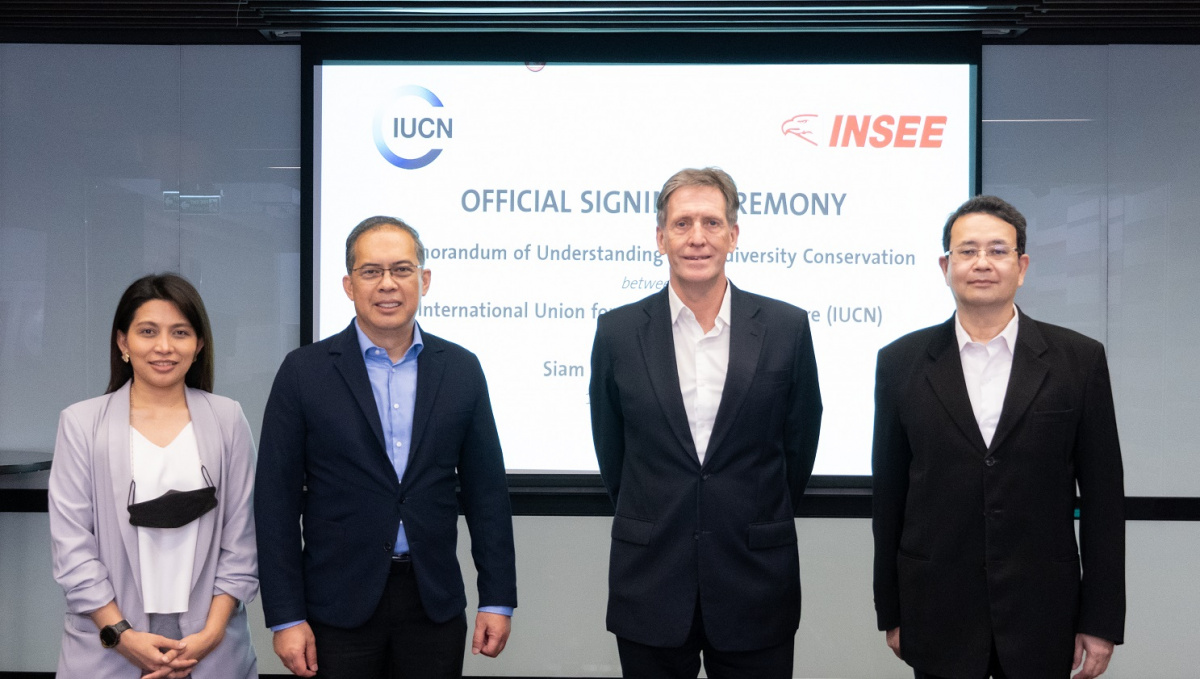Highlighting climate change impacts on Cambodian wetlands through citizen journalism
Thirty community members and wetland managers from three Mekong WET focal sites in Cambodia recently attended a citizen journalism training workshop in Koh Kong City. Conducted by IUCN, in collaboration with Apsara TV, a national media outlet, the workshop aimed to empower participants to produce news reports of ecosystem services and the impacts of climate change on wetlands and local livelihoods.
During the workshop, Apsara TV shared filming and interview techniques and introduced a mobile video editing app. The citizen journalism workshop is part of the Mekong WET project, which aims to enhance climate resilience of local communities by harnessing benefits from wetlands.
“Citizen journalism is key to capturing news as it happens. Through video reports, cocal communities can share how they use wetland resources on a daily basis as well as how they deal with climate change impacts such as floods and droughts. They can also share interesting sightings of unique animals or plants, Furthermore, by sharing information more widely through social media and traditional media, citizen journalism can help raise awareness about climate change impacts on wetland resources.” said Mr Chin Madepo, reporter from Apsara TV Channel and workshop trainer.
During the workshop, the trainers highlighted that citizen journalism and visual stories play a crucial role in enhancing public awareness about environmental issues. Citizen journalism provides local communities with a platform to share local knowledge about issues such as climate change and its impact on wetlands.
“Wetlands provide a wide range of benefits to the Khmer people. The Tonle Sap is the world’s largest inland fishery. We need to take proactive steps in safeguarding our natural resources.” said Mr Sorn Pheakdey, Water and Wetlands Coordinator, Cambodia Programme Coordination.
Following the workshop, community members can now use their mobile phones to develop video reports on local wetlands and climate change impacts. These reports will then be sent to Apsara TV for airing on national television.
Mekong WET is currently working in three sites in Cambodia: Koh Kapik Ramsar Site, Boeung Chhmar Ramsar Site and Boeung Prek Lapouv Protected Landscape. By increasing awareness of the benefits of wetlands, communities can garner support for restorative ecosystem-based adaptation approaches, such as mangrove replanting and ecosystem rehabilitation
____________________
About Mekong Wet
Funded by the International Climate Initiative (IKI) of the German Federal Ministry for the Environment, Nature Conservation, Building and Nuclear Safety (BMUB), the “Mekong WET: Building Resilience of Wetlands in the Lower Mekong Region” project aims to build climate resilience by harnessing the benefits of wetlands in Cambodia, Lao PDR, Thailand, and Viet Nam. Mekong WET, to be implemented until 2020, will help these countries address their commitments to the Ramsar Convention, an international treaty for the conservation and sustainable use of wetlands and to achieve the Aichi Biodiversity Targets. The project is also supporting the Indo-Burma Ramsar Regional Initiative (IBRRI) and the implementation of the IBRRI strategic plan 2019-2024.
